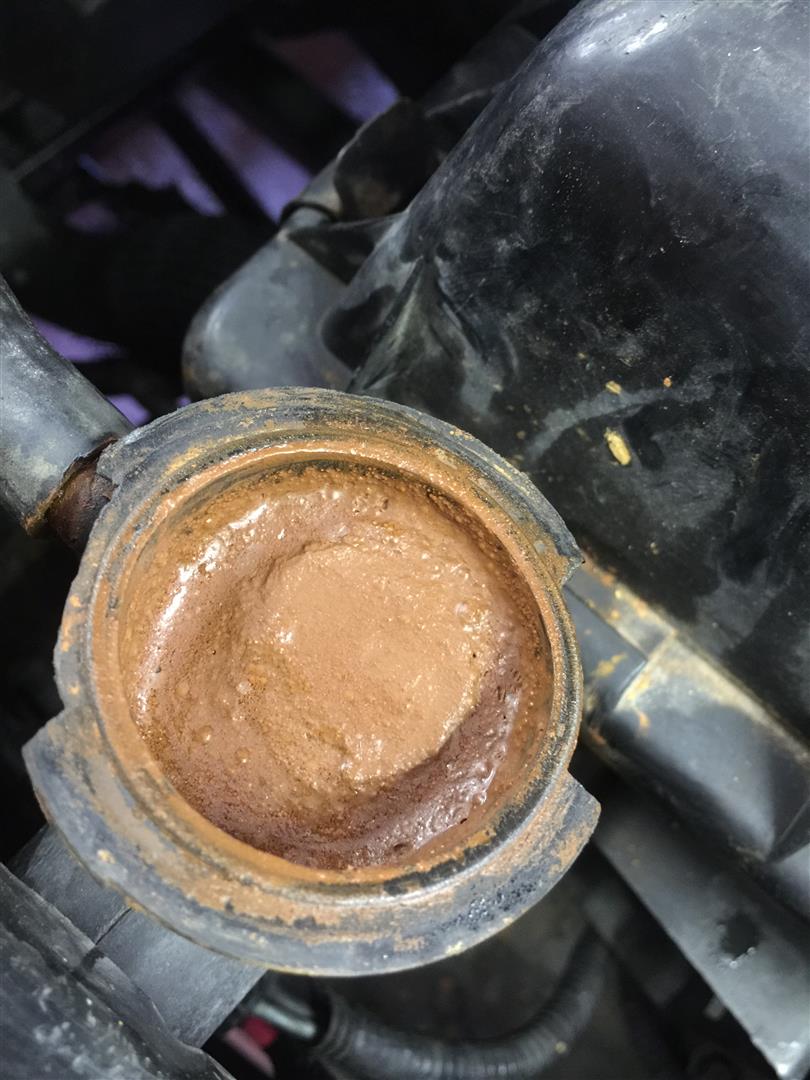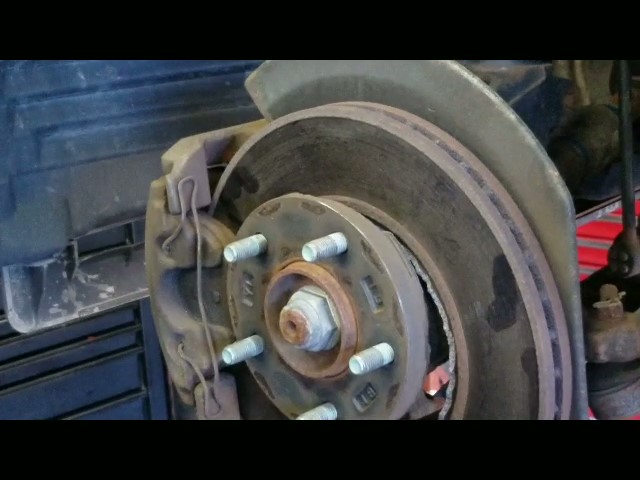Posted on 1/10/2023

A brief introduction to Car Coolant: This picture shows the worse consistency your coolant can have. Coolant fluid should flow like water. Coolant keeps your car operating at the temperature it needs to be at. Under the hood, it keeps your car from overheating and causing serious damage, like destroying the engine or causing leaks that can damage other systems. In the cabin where you spend most of the time, it affects your air conditioning and heating system. What and Where is the coolant system? The coolant system works to keep your engine from overheating. It absorbs the heat and pushes the now-hot coolant toward the radiator where it is cooled. Major parts of the coolant system include the coolant reservoir, water pump, radiator, thermostat, hoses, and cylinder head in the engine. The Coolant system is in the front end of your car and around your engine block. What can go wrong if you do not change your coolant or if the ... read more
Posted on 7/15/2021
Summer is here and living is easy! After the long cold year of 2020, we are ready to get out and live a little bit more. If you, like most Americans this summer, are planning on a trip by car make sure you get your car checked before you go. Unfortunately, due to covid, the car repair industry is still scrambling to get parts. This is forecasted to last into 2022. Parts that use to take us 2 days to receive now have taken as long as 6 weeks. This is also useful to keep in mind as you plan to send your kids off to school and/or tailgating season approaches. If you suspect something is wrong with your car, try to bring it in right away so we can order the parts you need in time for your big trip. Being preemptive instead of reactive is more important now than ever to keep your life running as smoothly as possible. As always, we here at Sunny Service Center, are here for you and look forward to seeing you
Posted on 10/26/2018

Rotors What are they? Rotors, with assistance from the brake pads and calipers, cause your car to slow down and/or stop. They are the circular metal part that the brake pads rub against to cause the wheels to stop spinning. They are as important as brake pads for stopping. Why do they go bad? Heat isn’t a friend of metal parts. Heat from friction can cause warping and wear. For those of you that remember LP records, think of records that were left in the sun. Signs you need new rotors. Squeaking, rough stopping, vibrating when slowing, When your rotors go bad you will hear it and feel it. Make it over to your mechanic as soon as possible. Helpful Info Rotors should be replaced every 30-70 thousand miles. And when you change the rotors you should change your brake pads too. Since the rotors and brake pads rub together the brake pads are ‘mated&rsquo ... read more
Posted on 10/10/2018
.jpg)
Child Car seat safety: Congratulations! You have yourself a mini me! Now you have the pleasure of figuring out your child’s car seat for the next 80 pounds or so. Fun times. With all the changing laws, recommendations, and car seats, this can be a confusing and stressful time. You want to keep your precious one safe, but you would like for ‘them’ to hurry up and decide the right way to do that. As AAP (American Academy of Pediatrics) just changed the rear facing car seat recommendations to rear facing until 4yrs, it doesn’t look like they’ll get it together anytime soon. There is a way to help keep your sanity though, whenever you hear the recommendations have changed look at NHTSA (National Highway Traffic Safety Administration) website, it is THE guideline. (they have not changed their recommendation of three years old) Car seats have grown in safety and complexity from the salad days of the burlap sack, to the first ac ... read more
Posted on 9/11/2018
The next week and a half is looking to be very wet and, as we are already seeing, flooding has begun. Since our flood water is salt it can be very damaging to vehicles. We’d like to remind everyone that driving thru salt water is a big no-no. Salt water is corrosive. It will eat away at your car. Anything over 4 inches will damage a sedan sized vehicle. Remember tow trucks will not rescue you until the water recedes, so as I like to say, Better safe than sorry. So, If you think the water will reach your under carriage I repeat, do not drive thru. Electrical system and combustion systems do not like water and your car is basically these two systems. Also water plus electricity equals electrolysis (which causes the blue crude you sometimes see near battery terminals) If you find yourself in any of these scenarios, here is my advice to you: If you are driving and find yourself facing a flood, turn around! Do not attempt to go thru the water. You never know what is unde ... read more
Posted on 9/7/2018
TPMS Tire Pressure Monitoring System What is it? TPMS is a monitoring system that lets the driver know if they have a flat tire or if the tires are low on air. There are 2 types of TPMS. Direct TPMS- more expensive, more accurate, doesn’t have to be reset after filling the tire or replacing tires. Battery tends to last a decade. Once the battery goes they need to be replaced, about every 10 years. Indirect TPMS- counts rotation of tire against the other tires. Under-inflated tires need to rotate more to keep up. Does not use a pressure sensor. Has to be reset after filling tires. Not as accurate. Making a comeback as technology improves. If ALL tires are under inflated by the same amount the TPMS alert won’t be triggered. TPMS came about in the 1980s in European luxury cars and became mandatory in the United States in 2009 for light passenger cars. The thought was that it would decrease the amount of accidents due to poor tire care and pressure. All cars 2007 or newer ... read more